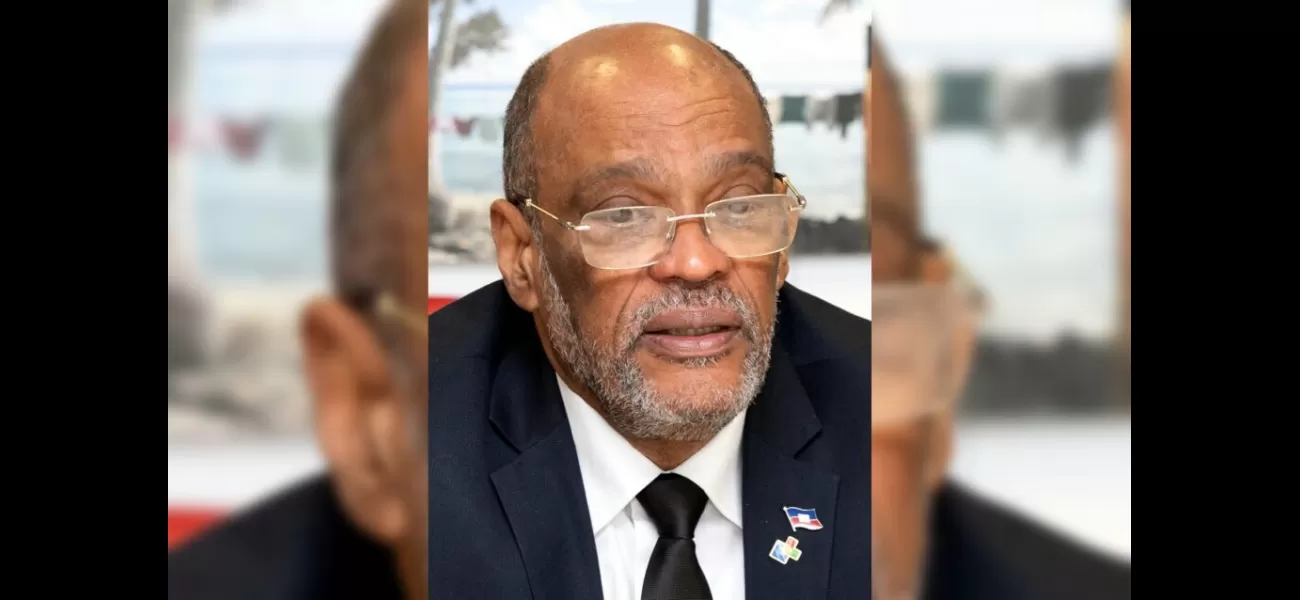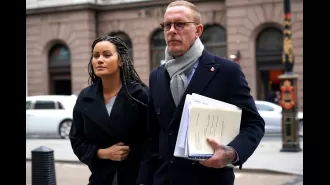Haiti's PM Ariel Henry to step down due to increased violence and instability.
Haiti's Henry postponed elections to 2025. Gangs united and attacked government buildings in response.
March 12th 2024.

After the tragic assassination of Haiti's President Jovenel Moïse in 2021, Ariel Henry has been serving as the de facto leader of the country. However, in light of mounting pressure and calls for his resignation, Henry has announced that he will step down as soon as a transitional council is formed and a new prime minister is appointed. This decision comes after the Caribbean Community (CARICOM), a coalition of Caribbean nations, called for his resignation and even announced it before Henry confirmed it himself.
In a statement, Henry declared, "The government will resign as soon as this Council is installed and will continue to handle current affairs until a new Prime Minister and government are appointed. I am grateful to the Haitian people for entrusting me with this opportunity to serve our country with integrity, wisdom, and honor."
According to a report by NPR, the President of Guyana, Irfaan Ali, revealed that the coalition had tentatively agreed to create a seven-member council consisting of representatives from the major political parties in Haiti. However, the gangs that have been terrorizing and controlling the capital city were not consulted in this decision.
It's worth noting that after the assassination of Moïse, the United States showed support for Henry's leadership. However, he failed to fulfill his promise of holding elections due to the rampant gang activity in Haiti. In February, Henry declared that elections would be postponed until 2025, which caused the Haitian gangs to unite and launch coordinated attacks on government buildings. These events eventually led to Henry's reported escape to Puerto Rico.
As reported by Al-Jazeera, the gangs threatened to unleash a civil war and commit genocide if Henry did not step down from his position as Prime Minister. This, coupled with the widespread belief that Henry is corrupt, led to his absence at the CARICOM emergency summit. The United States' Secretary of State, Antony Blinken, has pledged an additional $100 million for a UN-backed security force to help stabilize Haiti, as well as $30 million in humanitarian aid. Blinken stated that securing Haiti is crucial for the stability of the Caribbean nations.
The United States State Department has announced their support for "a proposal developed in partnership with CARICOM and Haitian stakeholders to expedite a political transition through the creation of a broad-based, independent presidential college."
As highlighted by Vox in 2023, the involvement of external bodies such as the United States and the United Nations in Haitian affairs has evoked memories of colonialism and imperialism, which have greatly influenced Haiti's history. The initial support from the United States for Henry, a neurosurgeon, may have contributed to the majority of Haitians not recognizing him as a legitimate leader.
Jake Johnston, a senior research associate at the Center for Economic Policy and Research, spoke to Vox, saying that sending troops to secure the country without addressing the root causes of instability and insecurity will not solve the issues plaguing Haiti. He stated, "You can't just send troops in and expect to solve the underlying problems. What is the plan? Will foreign troops occupy Haiti indefinitely to prevent any instability? I don't think so."
In conclusion, the resignation of Ariel Henry as Prime Minister of Haiti appears to be inevitable, with many calling for a new leader to address the country's ongoing challenges. The involvement of external entities has sparked debates and raised concerns about Haiti's sovereignty and self-governance. Only time will tell how the situation will unfold and who will ultimately take the reins of this troubled nation.
In a statement, Henry declared, "The government will resign as soon as this Council is installed and will continue to handle current affairs until a new Prime Minister and government are appointed. I am grateful to the Haitian people for entrusting me with this opportunity to serve our country with integrity, wisdom, and honor."
According to a report by NPR, the President of Guyana, Irfaan Ali, revealed that the coalition had tentatively agreed to create a seven-member council consisting of representatives from the major political parties in Haiti. However, the gangs that have been terrorizing and controlling the capital city were not consulted in this decision.
It's worth noting that after the assassination of Moïse, the United States showed support for Henry's leadership. However, he failed to fulfill his promise of holding elections due to the rampant gang activity in Haiti. In February, Henry declared that elections would be postponed until 2025, which caused the Haitian gangs to unite and launch coordinated attacks on government buildings. These events eventually led to Henry's reported escape to Puerto Rico.
As reported by Al-Jazeera, the gangs threatened to unleash a civil war and commit genocide if Henry did not step down from his position as Prime Minister. This, coupled with the widespread belief that Henry is corrupt, led to his absence at the CARICOM emergency summit. The United States' Secretary of State, Antony Blinken, has pledged an additional $100 million for a UN-backed security force to help stabilize Haiti, as well as $30 million in humanitarian aid. Blinken stated that securing Haiti is crucial for the stability of the Caribbean nations.
The United States State Department has announced their support for "a proposal developed in partnership with CARICOM and Haitian stakeholders to expedite a political transition through the creation of a broad-based, independent presidential college."
As highlighted by Vox in 2023, the involvement of external bodies such as the United States and the United Nations in Haitian affairs has evoked memories of colonialism and imperialism, which have greatly influenced Haiti's history. The initial support from the United States for Henry, a neurosurgeon, may have contributed to the majority of Haitians not recognizing him as a legitimate leader.
Jake Johnston, a senior research associate at the Center for Economic Policy and Research, spoke to Vox, saying that sending troops to secure the country without addressing the root causes of instability and insecurity will not solve the issues plaguing Haiti. He stated, "You can't just send troops in and expect to solve the underlying problems. What is the plan? Will foreign troops occupy Haiti indefinitely to prevent any instability? I don't think so."
In conclusion, the resignation of Ariel Henry as Prime Minister of Haiti appears to be inevitable, with many calling for a new leader to address the country's ongoing challenges. The involvement of external entities has sparked debates and raised concerns about Haiti's sovereignty and self-governance. Only time will tell how the situation will unfold and who will ultimately take the reins of this troubled nation.
[This article has been trending online recently and has been generated with AI. Your feed is customized.]
[Generative AI is experimental.]
0
0
Submit Comment





